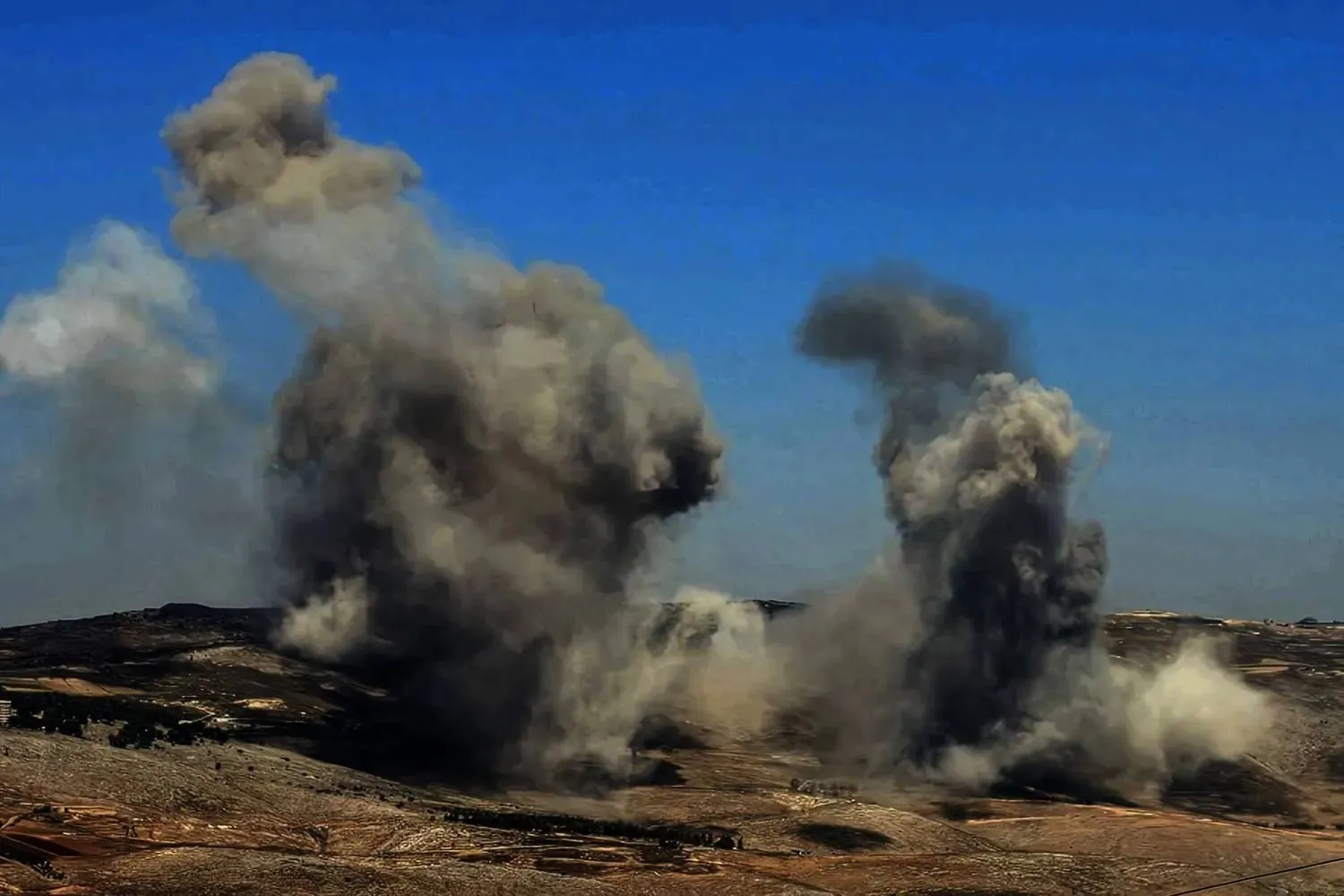Lebanon has formally proposed a trade-off to the United States: Israel withdraws from Lebanese territory, and in return, Hezbollah will pull its heavy weapons to north of the Litani River, a senior Lebanese official told Asharq Al-Awsat.
US officials have been informed that Lebanon cannot meet demands to disarm Hezbollah in the south without reciprocal steps from Israel, including troop withdrawals, a halt to hostilities, and the return of Lebanese prisoners.
The official said the country has effectively entered what he called a “dead-end equation” with Israel over the disarmament of Hezbollah, adding that Lebanon will not be able to act unilaterally without reciprocal steps from Tel Aviv.
They likened the situation to the classic “chicken or egg” dilemma: should Hezbollah pull its weapons first, or should Israel first withdraw from occupied Lebanese territory?
Under UN Security Council Resolution 1701, Israel is required to withdraw from all areas south of the Litani River. However, Israel continues to demand that Hezbollah disarm - at least of its heavy weapons - across all of Lebanon.
The official told Asharq Al-Awsat that Beirut has formally informed the US administration that reciprocal Israeli concessions, including troop withdrawals, an end to hostilities, and the return of prisoners, could offer a path to resolving the crisis.
The official said Lebanon is seeking strong American backing to pressure Israel into action. In return, he added, Lebanon is prepared to take meaningful steps in line with President Joseph Aoun’s inaugural address, which emphasized that the state must hold the exclusive right to possess arms.
The official revealed that Aoun asked US envoy Tom Barrack to help advance the disarmament process, stressing that any move to withdraw weapons must be preceded by Israeli steps in that direction.
According to the source, the Lebanese army has drawn up a detailed action plan and budget, which it presented to US officials. The plan outlines Lebanon’s commitments in response to each Israeli measure, whether related to troop withdrawals or other issues.
Lebanon believes that Israel’s continued military presence and cross-border attacks are preventing the full deployment of Lebanese troops south of the Litani River and hampering efforts to secure the border.
The official said Lebanon directly requested US guarantees for these steps in exchange for a commitment to begin withdrawing Hezbollah’s weapons north of the river.
The source also said that talks between Aoun and Hezbollah, suspended due to the recent Iran-Israel war, are expected to resume. He stressed that Lebanon “has both the vision and the will” to address Hezbollah’s arms nationwide.
Aoun has reportedly spoken directly with Hezbollah lawmaker Mohammad Raad, urging the group to hand over its heavy weaponry to the Lebanese army, which would either store or destroy the arms based on national security needs.
“This weaponry has lost its strategic role and usefulness after the recent war in Lebanon,” the source said. “It is no longer viable for use.”
Lebanese leaders are working to finalize a unified position in response to a US proposal delivered by Barrack, ahead of a key meeting on Saturday.
According to Asharq Al-Awsat, Aoun and Prime Minister Nawaf Salam have agreed on a draft response, which Salam will present to Parliament Speaker Nabih Berri. If consensus is reached, the proposal will be submitted to the Cabinet for approval and then delivered to Barrack upon his return to Beirut in less than two weeks.
Berri is expected to lead negotiations with Hezbollah on behalf of the Lebanese government.
The proposal, dubbed the “ideas paper,” outlines four key components:
A plan for Hezbollah’s gradual disarmament.
A step-for-step mechanism with Israel, where Israel demands Lebanon take the first move, while Beirut insists that the initial step must come from Israel as the occupying power.
A section on economic reforms and Lebanon’s cooperation with the World Bank and International Monetary Fund.
A framework for managing unresolved issues with Syria, including border demarcation and the return of refugees.
The US proposal, known as the “ideas paper,” includes several key elements, foremost among them a plan for the withdrawal of Hezbollah’s weapons and Lebanon’s strategy to begin the disarmament process.
The second point outlines a “step-for-step” mechanism with Israel. While Israel insists that Lebanon take the first move, Beirut maintains that the initial step must come from Israel, which it regards as the occupying power.
The third component addresses Lebanon’s economic reform agenda and its cooperation plan with the World Bank and the International Monetary Fund.
The fourth and final element focuses on Lebanon’s relations with Syria and ways to resolve outstanding bilateral issues between the two countries.
Information Minister Paul Morcos said Friday that the government is ready to act immediately if political contacts progress. “Israel must first withdraw from occupied areas and halt its aggression so that we can fulfill our commitments,” he said.







